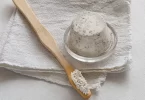
As a pet owner, one of your top priorities is ensuring your dog stays healthy and free from parasites. Worm infestations are a common issue for dogs, and they can lead to a range of uncomfortable symptoms, including vomiting, diarrhea, weight loss, and lethargy. While deworming medications are often prescribed by vets, you may be looking for more natural, home-based remedies to help eliminate worms and restore your dog’s health.
The good news is that there are several effective home remedies for deworming that can safely assist in keeping your dog’s digestive system clean and parasite-free. These natural solutions are not only effective but can also support your dog’s overall health and well-being.
In this article, we’ll share 9 effective home remedies for deworming dogs that can help your dog get rid of worms and stay healthy. These simple and natural approaches are easy to incorporate into your pet’s routine, and they can be just as powerful as conventional treatments when used correctly.
Why Choose Home Remedies for Deworming?
The idea of using natural remedies to treat worms in dogs might seem unconventional, but many pet owners prefer home-based solutions for a number of reasons:
- Less reliance on chemicals – Natural remedies can often be gentler on your dog’s body compared to synthetic medications.
- Cost-effective – Many natural deworming solutions are easy to find at home or can be purchased inexpensively.
- Fewer side effects – Unlike some chemical dewormers, natural remedies tend to have fewer potential side effects.
However, it’s important to note that while home remedies can be highly effective, they should be used carefully, and if your dog’s condition is severe, it’s always best to consult with a veterinarian.
9 Effective Home Remedies for Deworming Dogs

1. Pumpkin Seeds
Pumpkin seeds are one of the most well-known natural remedies for deworming dogs. They contain cucurbitacin, an amino acid that paralyzes worms and helps flush them from your dog’s intestines.
How to Use:
- Grind raw, unsalted pumpkin seeds into a powder.
- Mix the powder with your dog’s food — about 1 teaspoon per 10 pounds of your dog’s weight.
- Serve daily for up to a week.
2. Garlic (in Moderation)
Garlic is a potent natural remedy that can help expel worms and support your dog’s immune system. It contains sulfur compounds that are toxic to worms and can act as a natural dewormer.
How to Use:
- Mince a small clove of garlic and mix it into your dog’s food.
- Use caution, as too much garlic can be harmful to dogs. Stick to small, controlled amounts (1/4 teaspoon for small dogs, 1/2 teaspoon for larger dogs).
- Use garlic only a few times a week for best results.
3. Coconut Oil
Coconut oil is a powerful anti-parasitic agent that works to kill worms and improve your dog’s digestion. The medium-chain fatty acids in coconut oil can eliminate parasites like tapeworms, roundworms, and hookworms.
How to Use:
- Add 1/2 teaspoon to 1 teaspoon of coconut oil to your dog’s food, depending on their size.
- Start with small amounts and gradually increase the dosage.
- Feed it daily for about a week to help your dog expel parasites naturally.
4. Carrots
Carrots are more than just a healthy snack — they’re also great for deworming! Their high fiber content can help dislodge worms from the intestinal walls, while the rough texture helps to clear the digestive tract.
How to Use:
- Grate fresh carrots and mix them into your dog’s food.
- You can also feed whole carrots as a chew toy, allowing your dog to nibble on them as a natural way to clear the intestines.
- Serve them as part of your dog’s regular diet to help maintain a parasite-free gut.
5. Apple Cider Vinegar
Apple cider vinegar is a versatile and natural remedy that can help balance your dog’s pH levels and create an inhospitable environment for worms. It also promotes overall gut health.
How to Use:
- Add 1 teaspoon of apple cider vinegar to your dog’s water bowl, or mix it into their food.
- Start with small amounts and increase gradually. Be sure to watch for any digestive upset and adjust accordingly.
- Use daily as a preventative measure or for short-term deworming.
6. Diatomaceous Earth
Food-grade diatomaceous earth (DE) is a non-toxic powder made from fossilized algae that helps kill and remove worms from your dog’s digestive system. It works by dehydrating parasites, which leads to their death.
How to Use:
- Add 1 teaspoon of food-grade diatomaceous earth to your dog’s food for small dogs, or 1 tablespoon for larger dogs.
- Use once daily for a week, then take a break. Repeat the process as needed.
- Ensure your dog has plenty of water when using DE, as it can be drying.
7. Turmeric
Turmeric is another natural anti-inflammatory and antibacterial agent that can help fight worms. The active compound curcumin has parasite-killing properties and can also support your dog’s immune system.
How to Use:
- Mix 1/2 teaspoon of ground turmeric into your dog’s food for small dogs, and up to 1 teaspoon for larger dogs.
- Gradually increase the amount over time, and continue for up to a week to see results.
- Be mindful not to overdo it, as turmeric can sometimes cause digestive issues in large quantities.
8. Fennel Seeds
Fennel seeds are known for their ability to soothe digestive issues and expel parasites. They help clear worms from your dog’s intestines and can also reduce bloating and gas.
How to Use:
- Grind fennel seeds into a powder.
- Mix about 1/2 teaspoon of fennel seed powder into your dog’s food.
- Offer daily for up to a week, or as a preventative measure.
9. Papaya
Papaya contains enzymes, particularly papain, which can help break down protein structures in worms, making them easier to expel. It’s also a nutritious, natural food that supports your dog’s digestive system.
How to Use:
- Chop up fresh papaya into small, bite-sized pieces.
- Feed it to your dog as a treat or mix it into their food.
- Serve it daily for up to a week to help eliminate parasites.
While home remedies can be an excellent way to help your dog get rid of worms naturally, it’s important to remember that these solutions may not always be enough for severe infestations. If your dog shows persistent symptoms or if you’re concerned about the extent of the worm issue, it’s always best to consult a veterinarian for professional advice and treatment.
Incorporating these natural remedies into your dog’s routine can provide a gentle, effective way to prevent and treat worm infestations. With a little care, you can keep your dog parasite-free and ensure they enjoy a happy, healthy life.





